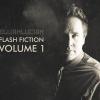Quote:
Original post by Kylotan
Quote:
Original post by Muzo72
...When the machine determines one's ability to write, it's also dictating what that person can write.
...If you think of the computer as just another instrument rather than some sort of anti-instrument, it's a different proposition... So I'd be less quick to consider someone who writes only on a computer as being any worse than someone who writes only on a piano. (Though someone with both skills is obviously likely to be superior to either of them.)
Great discussion. I actually have some time off today, so if you'll indulge me...
I agree that computers are just another tool in the process. I use computers every day in my own work whether it be orchestrating, composing, creating parts, whatever.
I think the real problem is that for some composers the sequencer becomes a substitute for real musical knowledge. This happens because it's very easy to create something that is just barely "good enough" without any real knowledge in a sequencer. This can and will come back to bite composers if they end up in situations where real musical skills are required. I've had the unfortunate experience of seeing it happen to some composers in the studio. You can only do so much to help somebody when they are hit with problems that are beyond their ability to solve. Even if you can save them, the mask has already come off and the damage has been done. That first big job can become the last.
The skills I'm talking about are
- the ability to hear and understand what is going on rhythmically, melodically, and harmonically
- the ability to communicate that infomation to others (or just save it for yourself) through common accepted notation and terminology (words like "octave," "vibrato," "diminished," "stacatto")
Working with a guitar or piano and paper requires both those skills. Simply playing into a sequencer doesn't preclude these skills but doesn't require them either. Don't read this as "sequencer-" or "computer-bashing". Sequencers are amazing tools, and I use them for a variety of musical tasks. The problem is that without the skills mentioned above a composer's ability to manipulate music in a sequencer is severely limited. By extension her creativity can also be limited.
For me, the bottom line is this: The choice of tool when composing music is secondary. What is most important is the skills and ability of the composer to hear the music in her head and translate that into a format that can be understood by both the composer and any others who may need to reference it.
Sequencers and recorders are powerful tools, but don't take the place of real musical skill. This is why people study an instrument and harmony/theory.









